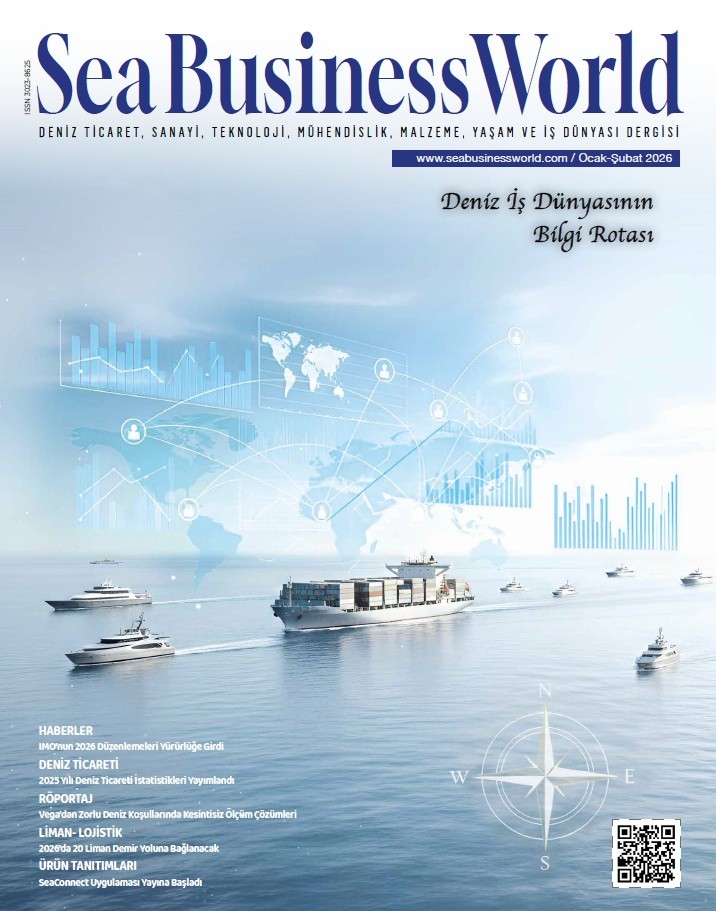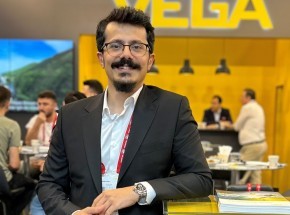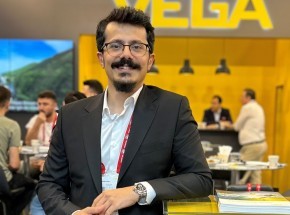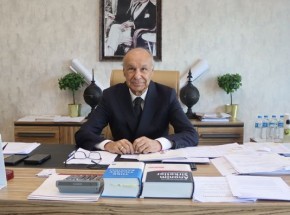TÜRKKAPDER, one of Turkey's most established maritime associations and founded in 1959, plays an active role in the industry as a leading organization representing Turkish seafarers on both national and international platforms. We spoke with Captain Zafer Akbulut, Chairman of the Board of the Turkish Oceangoing Shipmasters Association (TÜRKKAPDER), about the challenges faced by Turkish seafarers, proposed solutions, TÜRKKAPDER's work, and his vision for the future. Highlighting a critical point for the Turkish maritime sector to achieve a stronger position in international competition, Captain Akbulut said, "For Turkey to compete internationally, the visa, which we call the GREEN PASSPORT or OKEY TO BOARD, must be issued as soon as possible."
TÜRKKAPDER, where Turkish maritime plays a significant role, is an association with a deadline. Does this potential reflect TÜRKKAPDER's founding purpose and its promotion within the Turkish maritime sector?
The Turkish Oceangoing Shipmasters Association (TÜRKKAPDER) was founded in 1959 by oceangoing shipmasters. Its founding purpose was to bring colleagues together and foster solidarity. Today, the association has over 1,500 oceangoing shipmaster members. Our mission has evolved significantly over time. Today, we have moved beyond simply bringing together colleagues to become an organization that grants free degrees to universities' Maritime Transportation Management Engineering and Law faculties, and is a preferred choice for those seeking knowledge and experience in maritime culture.
TÜRKKAPDER is also one of Turkey's oldest career paths. Founded in 1959, our association is not an alumni association. In this context, the Chamber of Maritime Commerce is a fundamental and fundamental organization with a history older than the university alumni associations or the Chamber of Marine Engineering Engineers (GEMİMO).
"Turkish Oceangoing Ship Masters are playing an active role in maritime, both nationally and internationally."
Collaborations established in the national and international arena are crucial for the development of the sector. What collaborations does TÜRKKAPDER maintain with other maritime organizations and non-governmental organizations?
We also have a federation that brings together maritime associations in Turkey. Initially established with four associations, the Turkish Maritime Federation now encompasses approximately 36 maritime associations, representing a total audience of hundreds of thousands. Through this federation, we assess developments in the Turkish maritime sector. We discuss what needs to be done regarding accidents and the steps that can be taken for the development of seafarers and the maritime industry in general; we hold meetings and publish press releases on these topics. Last year, following three or four major accidents, we conducted research on what could be done to advance the maritime sector. We also held extensive meetings on topics such as green passports and seafarers' attrition rates. In addition, we organized various seminars for the development of maritime, bringing in guests from abroad and organizing meetings at Istanbul Technical University's Faculty of Maritime Studies. We shared all these events on our own social media channels to reach a wider audience.
Internationally, we have been members of the International Shipmasters Association for approximately 10 years. We were elected to the board of directors at last year's meeting. Currently, the Turkish Oceangoing Shipmasters Association actively participates in this association, representing Turkey. We participate in the meetings held in the UK every two months. This is crucial because we also have two representatives at the IMO. Furthermore, our association is active not only on international platforms but also at the national level. In addition to the Turkish Maritime Federation, two of Türk Loydu's 75 delegates come from our board of directors. Therefore, we actively contribute to Türk Loydu's elections.
While we cannot completely eliminate the challenges faced by seafarers, we are working to improve their living conditions.
Skippering is a profession that carries significant responsibilities in operational processes. What are the main challenges ship captains face in their daily operations? How do you, as TÜRKKAPDER, offer solutions to these challenges?
Maritime operations are essentially similar no matter where you are in the world. From captains to engineers to crew members, everyone has a clear duty: to receive a cargo and deliver it safely from one port to another. However, with changing global conditions, shipping is also transforming. While in the past, stays in port were longer, today these periods have become significantly shorter. This leaves seafarers under constant stress and stress. This is a common problem not only in Turkey but throughout the world. In today's commercial order, ports, ships, and technologies are constantly evolving, and faster work is expected. As the Turkish Oceangoing Ship Captains Association, while we cannot completely eliminate these challenges, we are working to improve the living conditions of seafarers. For example, we focused on the problems faced by seafarers during the pandemic. Visa barriers prevented our seafarers from disembarking in many countries. US and Schengen visas, in particular, were causing significant difficulties. We took initiatives in this regard and made some progress. At the summit held on July 1st last year, our Secretary General and IMO Secretary General met. This meeting, attended by Deputy Minister of Transport and Infrastructure, Mr. Durmuş Ünüvar, was very productive. As an ITU graduate and engineer, he provided us with significant support. This is how we are striving to establish strong relationships with Ankara, resolve the problems of our seafarers, and advance their careers.
Digitalization and automation have become one of the most significant factors transforming the maritime industry. How do you assess the impact of this transformation on the captaincy profession? We're seeing the captaincy profession undergo a transformation with developing technology. What do you think the captain profile of the future will be like? What kind of changes do you foresee in the sector in terms of technological and managerial skills?
With digitalization, many professions have shifted away from being people-centric. We can see this transformation in many areas, from banking to distance learning and artificial intelligence applications. The situation is a bit different in maritime. You can automate and digitalize ships, but maritime is inherently people-centric. For example, if a ship has 20 crew members, it's impossible to reduce that number to 15; the number must remain the same. Instead, digitalization courses are being added to university education. It's no longer enough for a captain to simply know how to navigate, load, and stow cargo; they also need to be knowledgeable about digital systems. This is a development that is pushing the profession forward. However, unlike on land, it's not possible to manage a ship with AI like a car. From a safety perspective, such a thing is out of the question. A ship still can't automatically change course in the event of an obstacle; it can only raise an alarm. Humans must make the final decisions and commands. Therefore, maritime shipping will continue to exist as a profession where the human factor cannot be diminished.
"As quality and crew qualifications improve, shipboard problems will decrease."
The International Maritime Organization (IMO) is taking action to ensure the safe management and operation of ships worldwide by refocusing on issues such as seafarers' working and rest hours, fatigue, violence and harassment such as sexual harassment, bullying, and sexual assault. The IMO Maritime Safety Committee is focused on improving the implementation of the International Safety Management (ISM) Code. What benefits will improving the ISM Code offer for seafarers and companies?
In fact, these issues are not new; they were on the agenda 20 years ago, and they remain so today. The ISM Code was created to ensure safety, but implementation is problematic. On most ships, the rules remain merely on paper, glossed over with copy-pasted documents. However, the real importance is actually implementing these rules. For example, if you try to operate a 20-person ship with 15 people, the remaining crew will be burdened with increased workloads, working hours will be extended, and safety will be compromised. Some ships also lack a watch system; It's managed by two officers, instead of three, and the captain is also required to keep a watch. The captain, already responsible 24/7, also has to keep a watch, which creates security issues. So, while everything seems fine on paper, there are serious problems in practice.
However, I find the IMO's recent efforts positive. New systems have been created, particularly for reporting harassment, bullying, and similar complaints directly to the IMO or our ministry. Thanks to this, we're seeing a significant reduction in these problems. As quality improves and personnel qualifications improve, such incidents will decrease even further. In fact, ships offer much safer working environments than ashore; while hundreds of cases of harassment or bullying occur ashore, the rate is much lower at sea. Therefore, it provides a safe working environment for both women and men.
"We are collaborating with universities to train qualified seafarers."
Training qualified maritime personnel continues to be a critical issue for the future of the sector. What are the main challenges faced in finding and training qualified personnel in the Turkish maritime sector? What efforts are being undertaken by TÜRKKAPDER to train qualified seafarers?
As TÜRKKAPDER, we serve on the administrative and advisory boards of all maritime faculties. There has now been a significant awareness of this issue. We are consulted on the curricula of all schools training captains and deck officers. Whenever new regulations or initiatives are being implemented in Ankara, both we and the Chamber of Shipping are consulted.
In this context, TÜRKKAPDER provides written recommendations to universities. For example, we specify what training should be included in course content and provide examples of international practices. Drawing on training provided in countries like the Philippines and India, we emphasize the need for similar practices in Turkey. We maintain constant communication with university rectors and deans during this process. We also attend the meetings held twice a year as Turkish captains and share our views directly.
"Seafarers should be able to be sent anywhere in the world quickly with a 'green passport' or 'okey to board' visa."
There's frequent discussion about what needs to be done to make Turkey a more influential player in the maritime sector on a global scale. What steps do you think should be taken to make the Turkish maritime sector a more effective player in global trade? How do you assess the effectiveness and competence of Turkish captains in the international arena?
In fact, we're constantly discussing this in meetings, maritime magazines, and conferences in Ankara. Our education quality is the same at almost all universities, and we train excellent officers. However, we can't export enough of this qualified personnel abroad. One of the biggest obstacles to this is the lack of simplified passport and visa procedures for seafarers.
For example, while green passports are issued to those who work for a certain period in some professions, in the maritime sector, we can't quickly send them abroad when a crew change is required. When you charter or buy a ship, you need to send your crew urgently, but visa and correspondence processes prevent this. Therefore, Turkish shipowners are often forced to use foreign flags and foreign crews. It's much easier to send Filipino, Indian, Ukrainian, or Russian personnel. As a result, we only capture a 1% share of the global maritime trade, yet we possess a young, educated, and qualified seafarer population. To address this, TÜRKKAPDER is communicating with Ankara and holding meetings with members of parliament under the umbrella of the Turkish Maritime Federation. Our proposal is to enable seafarers to be quickly sent anywhere in the world with a "green passport" or "okey to board" visa. This will increase employment and enable Turkish officers to work more effectively in the international arena.
"Our qualified seafarers, despite spending most of their lives abroad, are not receiving priority; this is a major shortcoming for the maritime sector."
Currently, Turkish personnel are working in management companies worldwide; however, most have green passports or strong US visas. Turkish companies, however, are unable to provide these, leading to a growing tendency to change flags. Turkey has 14 maritime faculties, 15 vocational schools, and over 30 maritime high schools; it boasts a young and qualified population. To tap into this potential, the green passport or "okey to board" visa must be implemented as soon as possible.
While the Philippines generates $10 billion annually from seafarer exports alone, we possess the same potential but are failing to tap it. Turkey has approximately 140,000 seafarers, 20,000-25,000 of whom are qualified personnel such as officers, engineers, and captains. The export of these seafarers could impact millions, including their families. However, our qualified seafarers, despite spending most of their lives abroad, are not receiving priority; this is a major shortcoming for the maritime sector.
"Ports in Turkey are rapidly modernizing and transitioning to green energy."
Türkiye's port management and infrastructure projects play a significant role in maritime sustainability. As TÜRKKAPDER, do you share your views on the management and governance of ports in Turkey?
I also work as a chief pilot at a port and have been here for about 10 years. There has been significant progress among ports compared to 10 years ago. Ports in Turkey are rapidly modernizing and transitioning to green energy. For example, in our port, rooftops are being used for solar energy, tugboats and boats are being electrified, and our cranes are being electrified. This transformation is happening not only in our port but in all ports in Turkey. Shipowners and port managements are working seriously on this issue.
Capacity is constantly increasing in ports such as Kocaeli, Ambarlı, and Izmir. For example, Kocaeli has 45 ports, and these ports drive Türkiye's maritime exports. 40,000-50,000 ships call at these ports annually. New electric tugboats, electric machinery, and automated systems are being used; we generate approximately 30% of our own electrical data. Port permits and investments are now being issued with this in mind.
We're curious about the projects TÜRKKAPDER plans to undertake in the coming period and its long-term vision. In this context, could you tell us about your planned projects and sector vision for 2025 and beyond as an association?
For nearly 10 years, we've been focusing on issues like green passports and seafarer attrition in the maritime sector, and we will continue to do so. 92% of maritime trade is conducted by sea, and it's a well-known fact that those who dominate the seas will have a say in global trade. Therefore, prioritizing seafarers is a critical task for both us and our managers.
NGOs should be used as a strong support mechanism when conducting professional studies; TÜRKKAPDER is one such NGO. We are ready to provide all the support we can to universities and the government. We maintain good relations with the Ministry, and we will continue to work to improve the quality of schools. Strengthening academic staff is particularly important; the limited number of academics at universities affects the quality of education. Academics need to be active throughout the year and develop a sense of belonging. As TÜRKKAPDER, we will continue to expand our teaching staff and send instructors to universities. This will raise the quality of maritime education and better train future seafarers. We will also continue to represent Turkey in international shipmasters' meetings and in collaboration with the IMO.
Finally, do you have anything to add?
Thank you. Magazines and interviews like these serve as an example to the community. The government's interest in the rights and laws of seafarers is crucial. For example, in the Philippines, the government provides all financial and moral support for seafarers' exports. For Turkey to compete internationally, the GREEN PASSPORT, or OKEY TO BOARD, visa needs to be issued as soon as possible. We've been working on this for 10 years and will continue to do so. This initiative will increase employment and increase the international influence of Turkish seafarers. Prioritizing this issue is crucial for Turkey to leverage its potential and capture a larger share of the global maritime trade pie.





